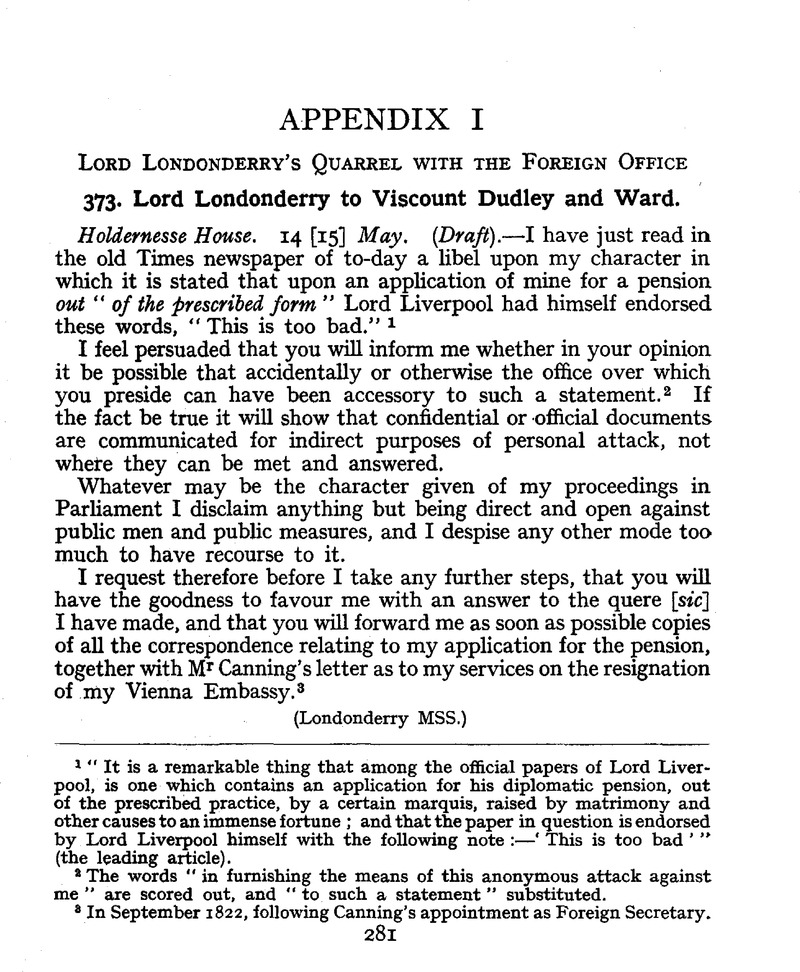No CrossRef data available.
Article contents
Lord Londonderry's Quarrel with the Foreign Office
Published online by Cambridge University Press: 24 December 2009
Abstract

- Type
- Appendix I
- Information
- Copyright
- Copyright © Royal Historical Society 1937
References
page 281 note 1 “It is a remarkable thing that among the official papers of Lord Liverpool, is one which contains an application for his diplomatic pension, out of the prescribed practice, by a certain marquis, raised by matrimony and other causes to an immense fortune; and that the paper in question is endorsed by Lord Liverpool himself with the following note:—‘This is too bad’” (the leading article).
page 281 note 2 The words “in furnishing the means of this anonymous attack against me” are scored out, and “to such a statement” substituted.
page 281 note 3 In September 1822, following Canning's appointment as Foreign Secretary.
page 282 note 1 Then Under-Secretary for Foreign Affairs.
page 283 note 1 The Governorship of Fort Charles, in Port Royal, Jamaica, which was given to Sir Benjamin Bloomfield. See George IV Corresp., No. 1027.
page 283 note 2 Bernadotte, who in 1818 became King of Sweden and Norway as Charles XIV.
page 285 note 1 Castlereagh's suicide in 1822.
page 285 note 2 “… It has certainly been the object of Mr Canning's Administration, though in the face of many difficulties interposed by his colleagues, to liberalize (if we may use the expression) the measures of Government, to open a more generous system of intercourse with strangers, and to disallow the hereditary pretensions of family pride at home. It has been his fortune singly and individually, with some spirit and no little skill, to drive away the flock of harpies, who, in their own persons, or those of their fathers, had fastened their beaks and talons in the body of the State for upwards of sixty years. We take one example, though we could cite many. Whoever considers that the grandfather of a Minister happily now no more, and his surviving brother, was a ragged Scotchman (a Scotchman!—what reflections that single word calls up in our minds I)—was a ragged Scotchman, carrying a pack, and that since the pack was laid down, the family has had really no other trade but that of statesmen.—with some leases, we believe, procured in that character, from the Dry-salters' Company, in London;—whoever, we say, considers these circumstances, and views the wealth and connexions of the family at this day, may conceive the rate at which this unhappy country has been plundered, and how the plunderers have been protected by their numbers and union.…”
page 287 note 1 See Lord Londonderry's speech on 7 May (Parl. Deb., N.S., xvii. 564).Google Scholar




